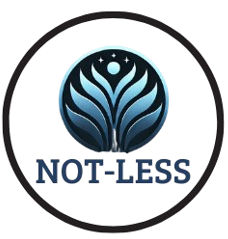 “Stephanie, there is more to life than children.”
“Stephanie, there is more to life than children.”
That’s what my ex-husband said to me when I told him that all my IVF options had failed with my current husband. I had nothing left—no more money, no more eggs, no more strength to keep going. While Richard thought that this was a compliment or a consolation, I felt it as something else entirely. It was a dismissal. A shortcut through my pain. A sentence that tried to close a chapter I was still living.
Why the Phrase Sounds Harmless—But Isn’t
“More to life than children” sounds like encouragement, especially to people who haven’t walked through infertility, failed IVF, or the complex experience of being childfree not by choice. But when you’ve lived through years of hormone shots, miscarriages, and quiet heartbreak, that phrase can feel like a slap.
It’s not just about what’s said—it’s about what’s skipped.
No one acknowledges the years of trying. No one names the grief. No one sits in the loss with you. The phrase becomes a convenient way to avoid discomfort—theirs, not yours. And it reinforces a belief many of us already wrestle with: that our lives, without children, must be redirected, redefined, or redeemed to be worthy.
It subtly suggests that what we’ve lost isn’t as important as who we could become if we’d just move on.
This Is How Stigma Sounds
Stigma doesn’t always shout. Sometimes it whispers.
It shows up in quiet moments—lines like, “There’s more to life than children,” or “Maybe it just wasn’t meant to be.” These words are often well-meaning, but they echo the expectation that grief should be private, quiet, and short-lived.
But skipping the grief doesn’t make it go away. It just drives it deeper.
There’s a name for this. In psychology, it’s called disenfranchised grief—a form of loss that isn’t widely recognized or validated by society. Infertility grief is one of its most common forms. When you are childfree not by choice, there is no funeral, no condolence card, no public language for what you’re carrying. But it’s real. It’s heavy. And it deserves to be seen.
What I Needed Instead
At that moment, I didn’t need a silver lining. I didn’t need someone to tell me to focus on the future or “find a new purpose.” What I needed was recognition. Because Richard had changed his mind about having children 11 years into our relationship. And that change came with real, life-altering consequences.
I needed him to say, “This is hard. I see what you’ve lost.”
Michel, my current husband, gave me that. He didn’t try to fix it. He didn’t offer platitudes. He sat beside me. We grieved together. We didn’t rush toward what was next. We sat in silence, in discomfort, and slowly walked out of it—hand in hand.
Yes, There Is More to Life—But Let Us Get There Ourselves
Eventually, yes, we found joy. But not because someone redirected us toward it.
We discovered moments of peace and purpose, but only after honoring the grief. Only after acknowledging the life that didn’t happen. Because this life—the one we’ve built—isn’t a replacement. It grew beside the one we lost.
So yes, there is more to life than children.
But that’s not something to be said to a woman still bleeding.
It’s something she might discover for herself, in her own time, in her own way.

